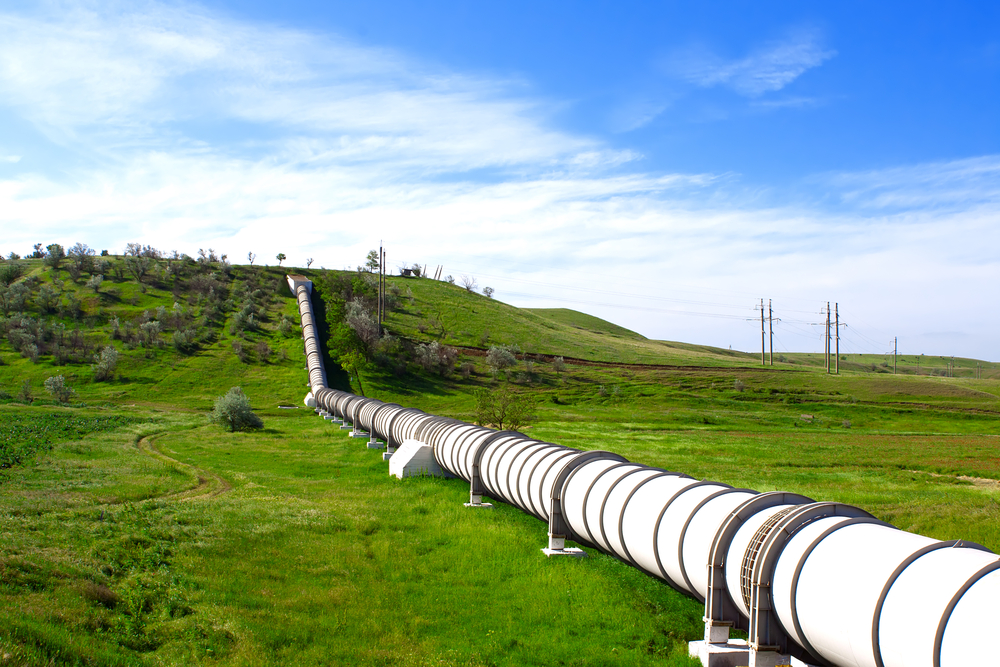North and South Dakota Clash Over CO₂ Pipeline Project

A multi-state pipeline project in the Midwest has sparked a tense standoff between North Dakota and South Dakota. South Dakota’s new law, which bans the use of eminent domain for carbon pipelines, threatens the viability of the project. This has prompted North Dakota officials to consider taking legal action against its southern neighbor. Let’s see what led to this dispute!
Background
The project surrounding this controversy was designed to offset the environmental impact of ethanol plants. Even though ethanol is a renewable fuel, its production also generates CO2, a known greenhouse gas. This presents an issue for these plants which compete with low carbon fuel alternatives in renewable energy markets. To maintain a presence in these markets, ethanol plants need a way to manage the CO2.
Summit Carbon Solutions has an ambitious answer to this dilemma: constructing a $9 billion multi-state pipeline where CO2 from ethanol plants would be directed to North Dakota and safely stored underground. This would allow ethanol plants to maintain a presence in large renewable energy markets. Since the pipeline will need to run through some private property, land easements from property owners will be necessary. That’s where the real trouble begins.
Pipeline Politics
North and South Dakota have been known to safeguard private property rights. In fact, both states received an A by Institute for Justice for their protections against eminent domain (you can see IJ’s report card and grading methodology here: 50 State Report-July.indd.) Yet when it comes to using eminent domain for the pipeline, these neighbors couldn’t be further apart.
North Dakota is in favor of the pipeline because it would support the ethanol industry and the farmers growing corn for ethanol production. On the other hand, South Dakota sees things differently. Rep. Jon Hansen framed the issue as taking away property rights to benefit a private company. Through that lens, it’s clear why South Dakota isn’t thrilled with an out of stater taking property rights from its own residents.
Access Denied
South Dakota enacted House Bill 1052 in March 2025. The bill states: “. . . a person may not exercise the right of eminent domain to acquire right-of-way for, construct, or operate a pipeline for the preponderant purpose of transporting carbon oxide.” This law has made it virtually impossible for Summit Carbon to obtain necessary property easements. Without these easements, the company’s lofty project is, quite literally, a pipe dream.
Summit Carbon has complained that it is being singled out by South Dakota’s legislation. South Dakota governor signs eminent domain ban on carbon pipelines • South Dakota Searchlight. Drew Wrigley, the Attorney General for North Dakota, also expressed his frustration with the law, calling it a “hostile act.” But South Dakota Governor Larry Rhoden isn’t backing down. Drawing from his experience fighting to protect property rights, he says the path forward should be voluntary land-access agreements rather than eminent domain.
Constitutional Clash
Attorney General Wrigley contemplated legal action against South Dakota under the theory that South Dakota’s law unduly burdens interstate commerce. Generally, laws that burden interstate commerce are deemed unconstitutional and are struck down under the Dormant Commerce Clause. When striking down a law under this clause, courts balance the nature and extent of the burden with the local benefits and consider whether less restrictive means could be used.
Given the constitutional issues at play, such a legal challenge may not be a slam dunk for North Dakota. Wrigley seems to agree, recently acknowledging that he doesn’t see a legal path forward to challenge the law. North Dakota attorney general says legal action against South Dakota pipeline law not an option • North Dakota Monitor.
To read the full article, click here.







